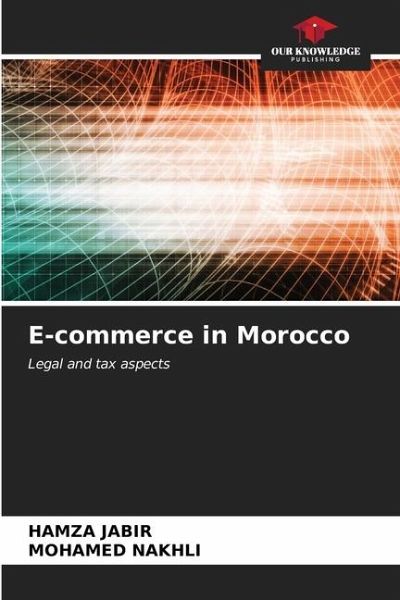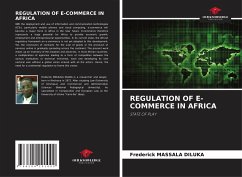
E-commerce in Morocco
Legal and tax aspects
Versandkostenfrei!
Versandfertig in 6-10 Tagen
53,99 €
inkl. MwSt.

PAYBACK Punkte
27 °P sammeln!
Morocco, like many other countries, has seen rapid growth in e-commerce in recent years. With the proliferation of smartphones and improved Internet connectivity, more and more Moroccans are turning to online shopping. With the increasing development of e-commerce, we are now witnessing an upheaval in the classic pattern of commercial relations, and the inadequacy of traditional tax principles. Tax authorities are now faced with the challenge of taxing these virtual transactions. This new landscape increases the risk of new forms of tax evasion and fraud, requiring innovative strategies to cou...
Morocco, like many other countries, has seen rapid growth in e-commerce in recent years. With the proliferation of smartphones and improved Internet connectivity, more and more Moroccans are turning to online shopping. With the increasing development of e-commerce, we are now witnessing an upheaval in the classic pattern of commercial relations, and the inadequacy of traditional tax principles. Tax authorities are now faced with the challenge of taxing these virtual transactions. This new landscape increases the risk of new forms of tax evasion and fraud, requiring innovative strategies to counter them.The aim of this work is to study the legal arsenal put in place by Moroccan and other legislators to regulate e-commerce, with a view to ensuring a certain level of security for all players in this virtual space. We also analyze the international consensus on the taxation of electronic transactions.












